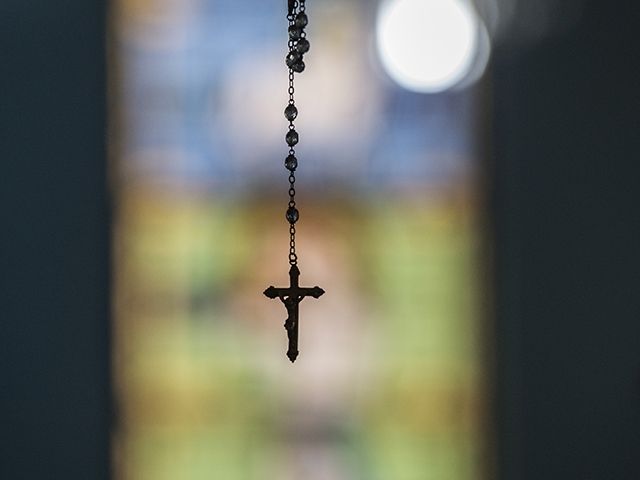
Religion and politics have long been intertwined in the fabric of human society. Throughout history, religious beliefs and institutions have played a significant role in shaping political ideologies, influencing governance, and even determining the course of nations. The relationship between religion and politics is complex and multifaceted, with both positive and negative implications. In this blog post, we will delve into the various aspects of this relationship, exploring its historical context, its impact on societies, and the challenges it presents in modern times.
Historical Context: From ancient civilizations to modern nation-states, religion has been a driving force in shaping political systems and ideologies. In many societies, religious leaders held positions of power and authority, often serving as intermediaries between the divine and the people. Religious teachings and beliefs informed laws, moral codes, and social norms, providing a framework for governance and societal order. The influence of religion on politics was evident in the establishment of theocracies, such as ancient Egypt or medieval Europe, where religious doctrines held sway over all aspects of public life.
Impact on Governance: Religion has played a pivotal role in shaping the governance and legal systems of many nations. Religious principles and values have influenced the formulation of laws, policies, and the protection of human rights. In some cases, religious perspectives have provided a moral compass for political leaders and guided their decision-making processes. Religious institutions have often served as important social and community hubs, advocating for social justice, providing welfare services, and engaging in charitable work. The influence of religious groups and leaders in shaping public discourse and policy agendas continues to be felt in many countries around the world.
Challenges of Religious Politics: While the influence of religion on politics can have positive aspects, it also presents challenges and complexities. One of the main concerns is the potential for religious intolerance, discrimination, and the violation of individual rights. When religious beliefs are imposed on society without respect for diversity and freedom of conscience, it can lead to social divisions, conflict, and the suppression of minority groups. The use of religion as a tool for political manipulation or the instrumentalization of religious rhetoric for personal or partisan gain can also undermine the democratic process and erode trust in political institutions.

Separation of Church and State: In many democracies, the principle of separation of church and state is upheld to ensure the protection of individual freedoms and prevent the undue influence of religious institutions on political affairs. This principle recognizes the importance of maintaining a neutral and inclusive public sphere where diverse religious and non-religious perspectives can coexist. It aims to strike a delicate balance between religious freedom and the equal treatment of all citizens, regardless of their religious beliefs or affiliations. However, achieving this balance can be challenging, and the boundaries between religion and politics continue to be debated and contested in many countries.
Interfaith Dialogue and Cooperation: In an increasingly interconnected world, the need for interfaith dialogue and cooperation becomes ever more crucial. Recognizing the diversity of religious beliefs and fostering mutual understanding can help bridge gaps and foster unity in the realm of politics. Interfaith organizations and initiatives bring together representatives from different religious traditions to engage in meaningful conversations, promote tolerance, and seek common ground on pressing political issues. By embracing the principles of respect, empathy, and collaboration, interfaith efforts can contribute to more harmonious and inclusive political landscapes.
Ethical Decision-Making: Religion often provides a moral compass for individuals and communities, influencing their ethical perspectives and guiding their decision-making processes. When religion informs political discourse and decision-making, it has the potential to promote values such as compassion, justice, and the common good. Ethical considerations rooted in religious teachings can shape policies that prioritize social justice, care for the vulnerable, and environmental stewardship. By infusing politics with ethical principles derived from various religious traditions, societies can strive for a more compassionate and just world.
Separating Personal Beliefs from Public Service: While religion can inspire individuals to enter public service with a genuine desire to serve and make a positive impact, it’s important to maintain a clear separation between personal religious beliefs and the responsibilities of public office. Public servants should be mindful of their duty to represent the diverse interests and beliefs of their constituents, regardless of their own religious affiliations. Striving for impartiality and inclusivity in policymaking ensures that decisions are made based on rationality, evidence, and the principles of justice and equality, rather than religious bias or favoritism.
In navigating the relationship between religion and politics, it is essential to strike a balance that respects religious freedom, upholds democratic principles, and fosters social cohesion. By promoting interfaith dialogue, ethical decision-making, and the separation of personal beliefs from public service, we can harness the positive potential of religion in the political sphere. Ultimately, the goal should be to create inclusive political systems that uphold the rights and dignity of all individuals, regardless of their religious beliefs or affiliations, and foster an environment of mutual respect, cooperation, and social progress.
In conclusion, the relationship between religion and politics is a complex and dynamic one. While religion has historically influenced political ideologies and shaped governance systems, it also presents challenges when it comes to religious tolerance, inclusivity, and the protection of individual rights. Finding a balance between religious freedom and the secular principles of democratic governance is an ongoing endeavor in many societies. By fostering open dialogue, respecting diversity, and upholding the principles of equality and human rights, we can strive to create inclusive political systems that accommodate diverse religious perspectives while ensuring the well-being and rights of all citizens.
Striving for a society that upholds the principles of religious freedom, inclusivity, and the separation of church and state requires open dialogue, respect for diverse perspectives, and a commitment to the common good. By navigating this relationship with mindfulness, empathy, and a commitment to justice, we can foster a political landscape that respects individual rights, values diversity, and promotes social harmony. Learn more tips on how religion works in this article from Bible Keeper.

